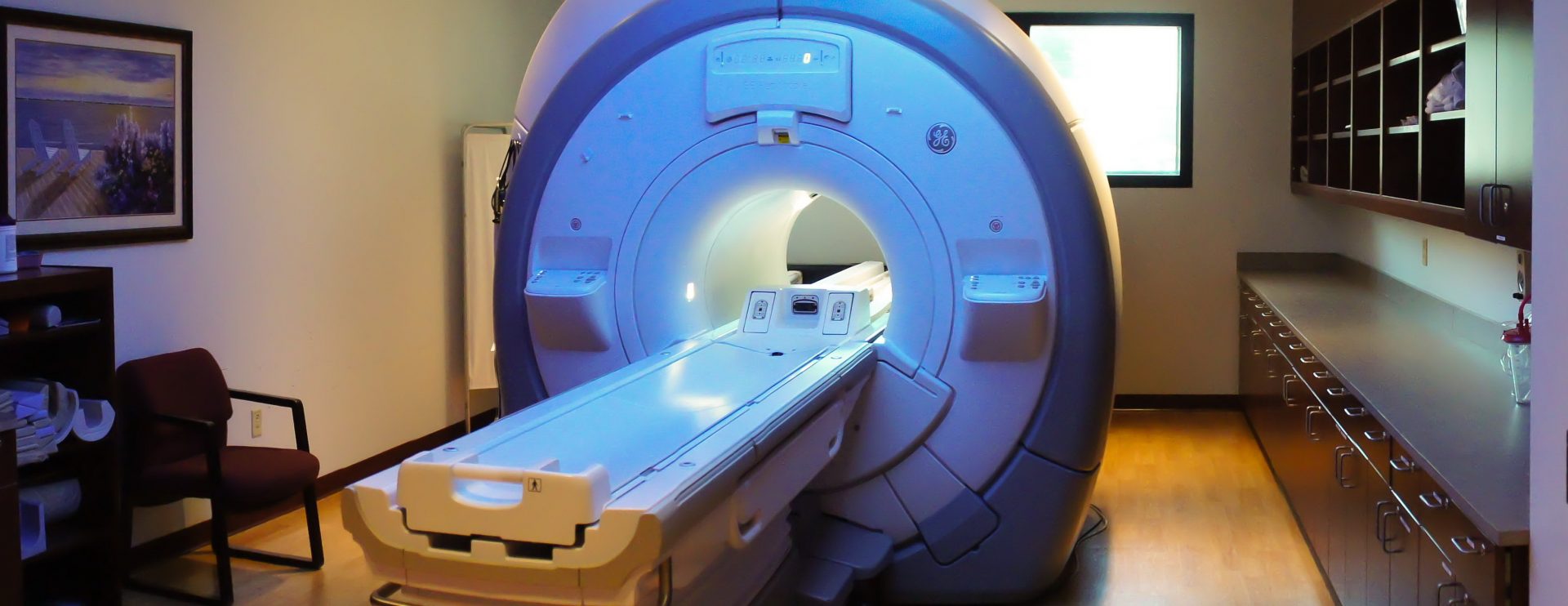About Your Exam
Preparing for an MRI
Magnetic Resonance Imaging (MRI)
- What is Magnetic Resonance Imaging (MRI) and how does it work?
- Is a MRI for everyone?
- How do I prepare for a MRI?
- What should I expect during a MRI?
- How long will the MRI procedure take?
- When do I get my MRI results?
What is Magnetic Resonance Imaging (MRI) and how does it work? back to top
Magnetic Resonance Imaging (MRI) is one of the most accurate methods of diagnostic imaging available today. MRI enables your physician to view the human body without the use of x-rays or invasive procedures and obtain precise diagnostic information. The following will explain everything you need to know about your exam.
MRI utilizes a strong magnetic field and radio frequency waves to construct a computer image. The image is then printed on a special film that is reviewed by a radiologist.
For some MRI procedures contrast media, commonly referred to as “dye”, is sometimes given intravenously during certain scans to provide the physicians with additional information.
Is a MRI for everyone? back to top
Although MRI is an effective diagnostic tool, certain medical conditions will prevent individuals from having an MRI. Please inform your physician and our center personnel at the time of scheduling if you have either of the following:
- Cardiac Pacemaker
- Implantable Cardioverter Difibrillator (ICD)
- Cochlear Ear Implant
Other certain medical conditions may prevent individuals from having an MRI. Please inform your physician and our center personnel at the time of scheduling if you have any of the following:
- Metal fragments located in one or both eyes
- Metal fragments or prosthesis within the body
- Pregnancy
- Certain type aneurysm clips
- Other certain type of electrical or magnetic activated implants
It is very important that if you are pregnant or there is a possibility of pregnancy, or if you are breast feeding, that you inform your physician and the center personnel prior to your MRI.
If any of these conditions exist, your physician and/or the center radiologist will determine if you can be safely imaged or recommend an alternative diagnostic imaging procedure that can be safely performed for your condition.
How do I prepare for a MRI? back to top
- We request that you arrive at least 15-30 minutes prior to your scheduled procedure time to complete paperwork and to change clothes if necessary.
- Please wear loose-fitting clothes without zippers or snaps or metal objects. We may request that you to change into a clinic gown.
- Please bring the written prescription your physician gave you for this procedure.
- You will be requested to complete a detailed MRI screening questionnaire asking certain safety questions. This includes questions relating to pacemakers, implantable cardioverter defibrillator’s (ICD’s), cochlear ear implants, aneurysm clips, metal implants, metallic foreign bodies, pregnancy, breast feeding, body piercing, and tattoos.
- You should take all of your usual medications, but inquire about taking sedation or pain medication prior to your procedure if you have a fear or anxiety of small spaces or cannot lie still for 30-60 minutes at a time due to pain an/or anxiety condition.
- If your MRI procedure requires sedation or pain medications, please bring a driver and notify our scheduling department.
- Most MRI procedures do not have eating or drinking restrictions; however, our staff will inform you of any dietary restrictions that may be required at the time your procedure is scheduled.
- No metal objects are allowed in the scan room. This includes, but is not limited to jewelry, watches, credit or bankcards, hairpins, clips or barrettes, wigs, hearing aids, beepers, keys or key chains, and loose pocket change.
- You should remove all eye make-up before your procedure. Some make-up contains metal that may distort the images.
- It is recommended that all body piercing jewelry be removed prior to the procedure. Some body piercing jewelry contains metal that can be a safety concern or can distort the images.
- You will be provided a locker to store your personal items; however, we recommend that you leave all unnecessary valuables at home.
- We strongly encourage you to ask questions and discuss any concerns you may have prior to your procedure. We strongly believe that communication with our patients is an important part of the service we provide.
- Patients who are scheduled for an MRI, who have a history of renal failure or insufficiency, hypertension, diabetes, severe liver disease or transplant and those over the age of 60 will be asked for blood test results. The blood test should have been performed no more than 30 days prior to their exam. Patients should speak to their referring physician to make these arrangements as certain patients with the above conditions may not be able to receive the intravenous contrast associated with the MRI exam.
What should I expect during a MRI? back to top
- You may be asked to change into a clinic gown and escorted to the MRI room.
- A MRI technologist will assist you on to the padded exam table and position you for the procedure.
- During the procedure, you will need to lie as still as possible; movement can cause blurred images requiring the MRI technologist to repeat part of the procedure.
- You will hear knocking sounds during the procedure. Earplugs, headphones, or music will be provided for your comfort.
- The MRI technologist will be in constant communication with you during the procedure using a two-way microphone system.
- For your comfort, blankets and/or pillows will be provided upon request. The MRI exam room is typically cool in order to ensure that the computer system operates properly.
- Some patients may require an intravenous injection of a contrast material to enhance the visibility of certain tissues or blood vessels.
- Our goal is to provide you with a pleasant and comfortable MRI procedure. If you are uncomfortable in any way, please inform your MRI technologist.
How long will the MRI procedure take? back to top
A typical MRI procedure will last 30-60 minutes depending on the specific procedure requested by your physician.
When do I get my results? back to top
Our certified MRI technologist will prepare your MRI Images for the radiologist to evaluate. The radiologist will interpret your results and dictate a written report, which will be forwarded to your physician generally within 24 to 48 hours of completion of your procedure. Your physician will convey the results of the MRI to you.


